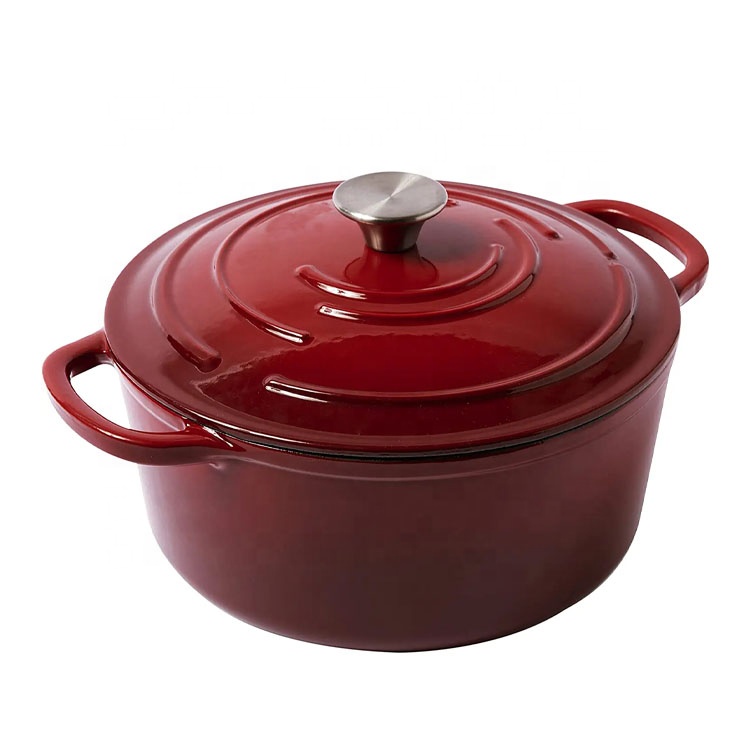
Tips for Preventing Enamel Chipping on Your Dutch Oven During Cooking
The Dilemma of Enamel Coming Off Dutch Ovens Causes, Solutions, and Prevention
Dutch ovens have long been favored among cooking enthusiasts for their versatility, durability, and ability to retain heat. These heavy-duty pots are perfect for a range of culinary techniques, from slow simmering and braising to baking. However, one troubling issue that many users face is the enamel coating chipping or coming off. This can not only affect the pot's performance but also raise concerns about food safety and overall aesthetics. If you've experienced enamel coming off your Dutch oven, understanding the causes, finding solutions, and learning prevention measures are essential to prolonging the life of this beloved kitchen tool.
Understanding the Enamel Coating
Enamel is a glass-like coating that is fused to cast iron to create a non-reactive, easy-to-clean surface. This coating provides both color and durability, allowing for beautiful presentation as well as functional versatility. Despite its advantages, the enamel layer can be compromised if not adequately cared for, leading to chipping, cracking, or peeling.
Common Causes of Enamel Damage
1. Accidental Scratching One of the most common reasons for enamel chipping is the use of metal utensils. Metal spoons, spatulas, or whisks can easily scratch the surface of the enamel, leading to small chips that will eventually worsen over time.
2. High Temperature Changes Sudden temperature changes can put stress on the enamel coating. For example, placing a hot Dutch oven in cold water can cause the enamel to crack. Similarly, placing a cold Dutch oven on a hot stovetop can have the same effect.
3. Improper Cleaning Harsh cleaning agents, steel wool, or abrasive sponges can strip away the protective enamel. It's crucial to avoid these cleaning practices and instead use gentler methods.
4. Poor Quality Enamel Not all Dutch ovens are created equal. Some cheaper models may use lower-quality enamel that is more prone to chipping and wear over time.
Solutions to Enamel Damage
If you discover that the enamel on your Dutch oven is chipping or coming off, here are some steps you can take
1. Stop Using the Damaged Area If the damage is significant, it may be unsafe to continue cooking with the pot, as food particles can get trapped in the chips, potentially leading to contamination.
enamel coming off dutch oven

2. Assess the Damage If the chipping is minor and does not expose the cast iron underneath, the pot may still be safe to use. However, keep an eye on it and avoid using it for high-acid foods that can worsen the damage.
3. Repair Kits There are enamel repair kits available that can help fix small chips. These kits often include a special paint that can be applied to the damaged area. However, be cautious and check if the product is food-safe before utilizing it.
4. Consider Replacement If the damage is extensive, it may be wise to invest in a new Dutch oven. While some high-quality models can be pricey, they are an investment in durability and long-term use.
Preventing Enamel Chipping
Prevention is always better than cure. Here are some tips to help protect your Dutch oven from enamel damage
1. Use Non-Metal Utensils Opt for wooden, silicone, or plastic utensils when cooking or stirring in your Dutch oven. These materials are less likely to scratch the enamel.
2. Avoid Extreme Temperature Changes Allow your Dutch oven to cool down before washing it, and avoid sudden temperature changes.
3. Gentle Cleaning Use soft sponges or cloths for cleaning your pot. A gentle dish soap and warm water usually do the trick without causing damage.
4. Invest in Quality When purchasing a Dutch oven, look for reputable brands known for their durable enamel coatings. It may cost more upfront, but the longevity and performance you receive will be worth the investment.
Conclusion
The issue of enamel coming off Dutch ovens can be concerning, but it is often preventable and fixable with proper care. Understanding the causes, being proactive in maintaining your cookware, and knowing how to address any damage that occurs will help you enjoy your Dutch oven for years to come. Happy cooking!
-
Season Cast Iron Perfectly with GPT-4 Turbo TipsNewsAug.01,2025
-
High Quality Cast Iron Cookware - Baixiang County Zhongda MachineryNewsAug.01,2025
-
Premium Cast Iron Pan: Durable & Perfect HeatNewsAug.01,2025
-
High Quality Kitchen Durable Black Round Cast Iron Cookware Pancake Crepe Pan-Baixiang County Zhongda Machinery Manufacturing Co., Ltd.NewsAug.01,2025
-
Cast Iron Cookware - Baixiang County Zhongda Machinery | Nonstick, Heat ResistanceNewsAug.01,2025
-
High Quality Kitchen Durable Black Round Cast Iron Cookware - Baixiang County Zhongda Machinery | Non-Stick, Heat Retention, DurableNewsJul.31,2025


